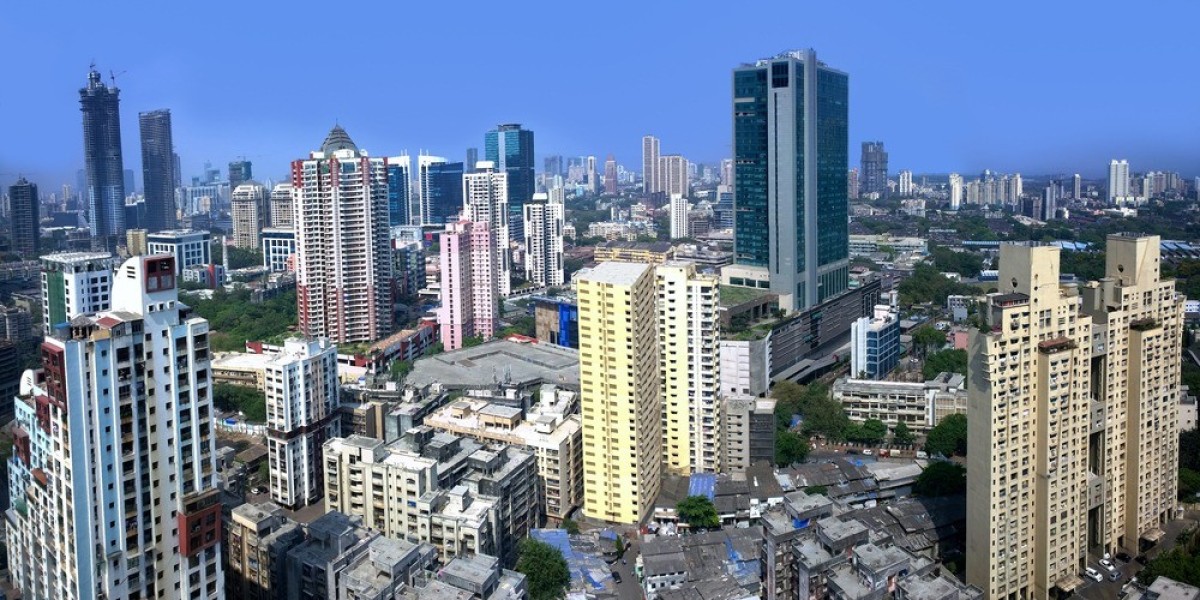However, this bustling metropolis comes with a hefty price tag. Owning a piece of property in Mumbai is a cherished dream for many, but the high prices seem almost otherworldly. Did you know that Mumbai is the only Indian city on the list of the top 20 most expensive luxury real estate markets in the world? It's true! At the 18th position, it's even pricier than some big cities like Sao Paolo and Cape Town. In this article, we will embark on a journey to unravel the mystery behind why property in Mumbai is so outrageously expensive.
Limited Land, Unlimited Aspirations: Mumbai's geographical location as an island city surrounded by the Arabian Sea on three sides has led to a linear development pattern from north to south, making circular expansion impossible like in other cities. This limitation has resulted in a severe scarcity of land for housing, causing property prices to surge due to high demand. With reclamation as the only viable option for increasing land supply in the future, the city's overwhelming population density, distance to suburbs from prime city centers, and inadequate connectivity have contributed to record-high property prices in central and surrounding areas like Juhu, Bandra, Chembur, and Byculla.
Policy Issues: Policy issues have significantly contributed to the sky-high real estate prices in Mumbai. Ready reckoner rates alone increased by 15-20% in the 2013-15 period, setting expensive floor prices. The FSI (floor space index) laws have remained unchanged since 1964, influencing construction size and length differently across municipalities and locations. As the FSI limits were set higher than the then-demand in various Mumbai localities, the lack of space combined with soaring demand resulted in unimaginably high property prices over the years.
Infrastructure Bottlenecks: Mumbai's infrastructure development has been impressive, but important projects like the Mumbai Trans-Harbour Link (MTHL), Coastal Road, Navi Mumbai International Airport, and metro railway links face delays, leading to worsening congestion and traffic issues. Despite these challenges, people are still willing to pay a premium to live in established locations near the city center, where they can access good infrastructure. Unfortunately, upcoming areas without such advantages often get overlooked in favor of the convenience offered by well-established neighborhoods. If you are considering investing in Mumbai, take a look at AsmitA Grand Maison in Mira Road. This ongoing project promises a unique blend of luxury and privacy, offering lavish facilities like luxury cabanas, a refreshing swimming pool, a fully-equipped gym, and a splendid banquet area in an affordable price.
Booming Economy, Global Attractiveness: Mumbai's economy is booming, making it the economic capital of India. It is home to the headquarters of multinational corporations, financial institutions, and thriving industries, which attract talent from all corners of the globe. The abundance of job opportunities fuels the demand for housing, leading to a continuous rise in property prices. A study by Knight Frank, a prominent global property consultancy, confirms Mumbai's position among the top cities in the world for real estate investment potential, drawing significant foreign investments to the city.
Investment Haven: For many investors, property in Mumbai is more than just a place to call home; it is a lucrative investment option. Owning property in the city is perceived as a symbol of status and financial prowess. Additionally, the city's property market has historically delivered impressive returns on investment, attracting more investors into the fray.
Despite its flaws, Mumbai continues to hold the title of the most desirable city to live in within India. Despite its challenges of indifference, poverty, and over-crowding, it remains a magnet for people, with more and more clamouring to live here each year. As long as other cities in India fail to provide the same opportunities as Mumbai, the real estate prices in the city will continue to soar and dominate the market.








